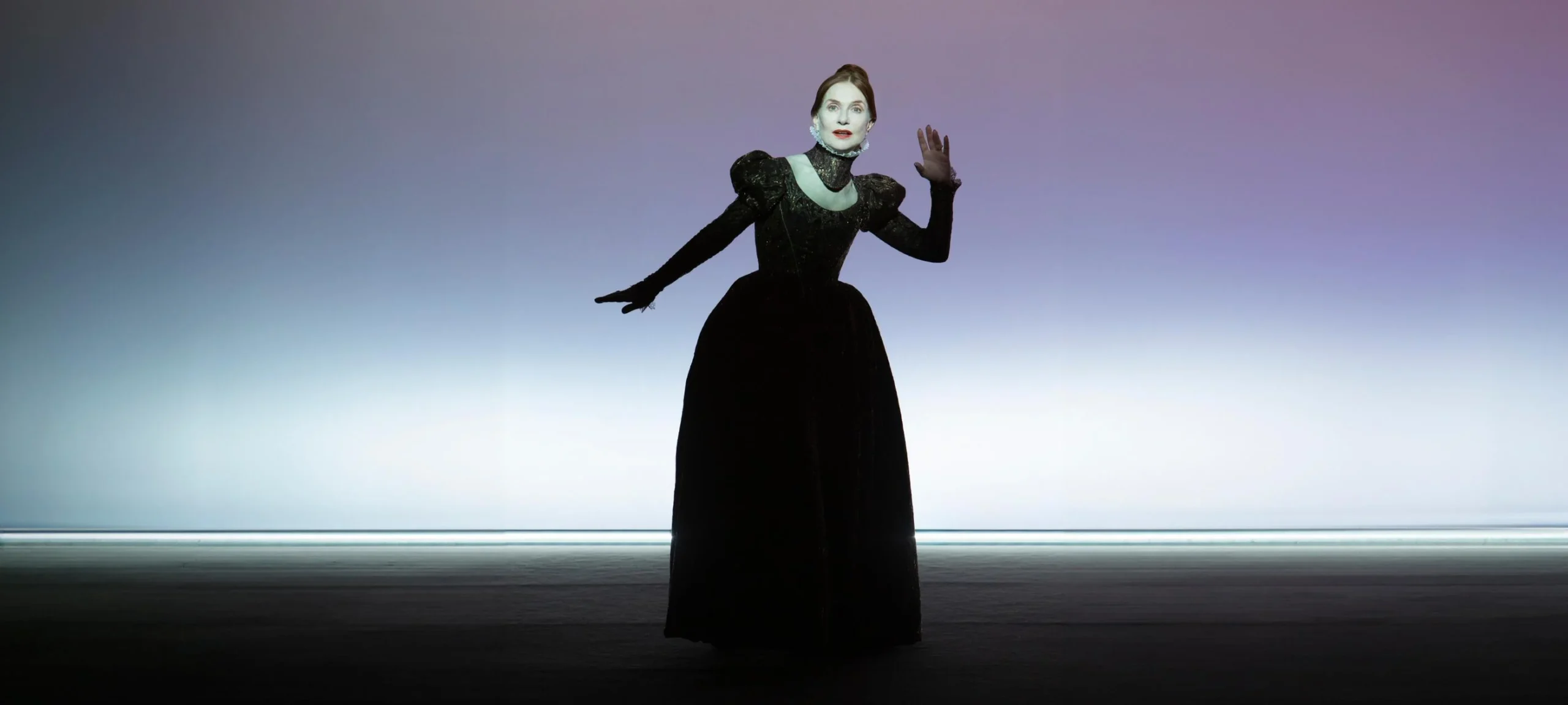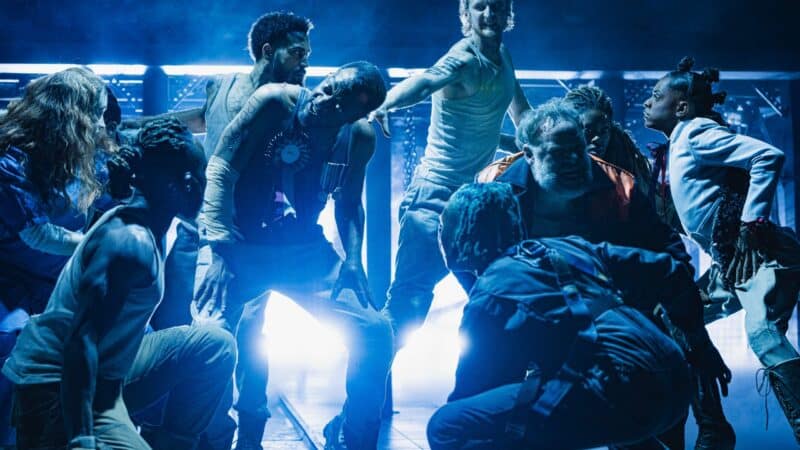Barbican Centre
Although pity might be thin on the ground for us critics, it is a balancing act of a job. Someone’s baby, their dreams and sometimes livelihoods are affected by our words. Although some would disagree, most of us are not unnecessarily cruel spiteful little sprites. Small-scale or fringe theatre particularly needs a lighter tone and delicate, kinder eye, one we regularly cast upon it.
Thankfully in the case of famed American director Robert Wilson’s most recent project with lorded French theatre company Théâtre de la Ville–Paris, staring award-winning actress Isabelle Huppert, the kid gloves are very much off. The fact that well-respected author Darryl Pinckney and equally well-respected composer Ludovico Einaudi are involved only strengthens the aura of this piece being a shoo-in.
The subject matter Mary Queen of Scots no less, her tragic early marriage to the French king, rocky role in the Scottish court and subsequent imprisonment by her cousin Queen Elizabeth, all pretty meaty fare. The French language used makes historical sense, as she would have spoken French, all this promises a romping evening of heaving bosoms and pale extended necks. Truthfully we do get the last two.
On paper (and by that, I mean on the Barbican’s website) these bejewelled names are intersected with phrases like tour de force and remarkable, and how else could it be anything other than that? With all involved, in these dwarven hallowed halls, with enough gold behind it and creative pyroclastic flow? How could it be anything other than that? HOW?
As it turns out quite easily. Huppert marches on slowing into a gloomy bare stage. The lights go up but still not enough to distinguish her face. She begins a monotone monologue that is flashed up in English subtitles stage left, right and above. We get changes in light, with some futuristic washes, Einaudi’s pleasant period piano plonking, and that’s it folks, for one and a half hours.
Some may wheel in as a defence of Samuel Beckett’s play Not I, an infamously static piece. But that is short (9 minutes), surreal and revolutionary, while this sadly is none of the above. Things that cropped up in my tortured mind as I was subjected to this theatrical fast one, in no particular order. Will I die here? Am I already dead? Is this a joke? Am I a joke? Did they string this together the night before? This can’t really be it, can it? Oh god, it is? Why is all the wine gone?
The babbling flow of Pinckney’s admittedly rhapsodic prose is pretty much unbroken. Like a pretentious TED talk, Tudor rap, or a haunting druid spell it is the runaway train of one-person-shows.
No no, I am not being fair there are a couple of breaks in the French queen’s lament. By these points we the audience are so starved of stimulation we actually view them as a saving grace. Wilson has choreographed vague and repetitive movements for Huppert so at least she’s not physically stone for the whole piece. At one point she picks up a white shoe, and spins around with that for a while, then drops it down a trap door, doing the same with a letter that she almost burns. Another actress comes on dressed also as Mary and I almost leap out of my seat with excitement. Dialogue? Movement? Character interaction? But no, she proceeds to drop dead, lucky woman.
The only remotely interesting thing is Huppert’s midnight black, lightly stoned Elizabethan gown, which I spent so much time staring at I counted each minuscule crystal. There is also a dream-like section where Mary sits down holding a giant thistle (subtle) submerged in fog contained upstage by an invisible gauze wall. So two things. Also despite the maddening monologue and lacklustre movement Huppert’s powdered face and red lips are doing their best, gurning and constricting. Lastly hats (or heads) off for learning all those many, many, many lines.
I do not know what to blame. Success being its own downfall perhaps? The nebulas nature of experimental art? The French? Mary the dead queen herself? Myself? But what I know is that this neither tells the story of the dammed monarch nor brings anything new, interesting or even remotely engaging to the stage. By the one-hour mark, I muttered darkly to myself “Chop her head off and be done with it”. Mary May Have Said What She Said, but she also did pretty little else, and therein lies the problem.
Grab tickets, if you dare, click here?



